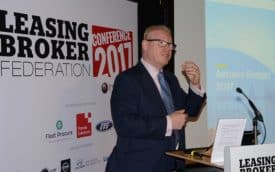HMRC is reminding companies that have entered into new or amended existing salary sacrifice and cash allowance agreements on cars since April 2017 to ensure such benefit in kinds are reported on form P11D using the new rules.
Salary sacrifice and cash for car allowances since April 2017 fall under the new Optional Remuneration Arrangements (OpRAs).
Essentially, a benefit in kind is applied on either the cash sacrificed for the car, or the benefit in kind value of the car, whichever is the higher. However, cars with emissions below 75g/km are still exempt from the new OpRA rules.
The same is true for cash for car agreements: the benefit in kind is applied to the cash for car amount, or the benefit in kind value of the car, whichever is greater.
As with salary sacrifice, cash for car allowances are exempt for cars with emissions below 75g/km.
The tax changes apply to all new agreements that took effect from April 2017.

Nigel Morris, Employment Tax Director at accountancy and tax advisers MHA MacIntyre Hudson, commented:
“This is a potentially a very significant change. The new rules will negate the income tax and NIC advantages that can exist where some BIKs are subject to tax and NIC on an amount that is less than the salary sacrificed or foregone.
“The impact on both employers and employees through additional tax and Class 1A NIC charges is estimated to increase Exchequer receipts by £85m in 2017/18 rising to £260m in 2021/22.”
Nigel added that the situation in relation to cars has been further complicated by a recent HMRC clarification regarding circumstances where there are separate and distinct benefits being provided – the car is one benefit, insurance is another benefit, maintenance is another, and so on.
So how does OpRA work for cars?
Under OpRA for a car that is over 75g/km you need to compare
- the salary sacrifice relating solely to the car (and not any of the other benefits); and
- the normal car benefit charge for the car (list price x CO2 percentage)
Having done that you can then determine which of the two is the “higher of” value.
This “higher of” value then becomes the taxable benefit value for the car and is the benefit figure on which the employer pays Class 1A NIC.
“This clarification will mean that in many circumstances, even where the car has a CO2 in excess of 75g/km, the company car BIK will still be the ‘higher’ amount to be recorded on P11D and subject to tax and Class 1A NIC,” Nigel added.
“That is the good news.
“The challenge for employers will be ensuring that their policies, systems and procedures are appropriately structured and sufficiently robust to arrive at the salary sacrifice value relating solely to the car, as it is unlikely the pre-existing P11D records and systems are set up for this.”
The closing date for employers to send P11Ds to HMRC is 6 July 2018.
Nigel Morris, an expert in company car tax affairs, was one of our independent judges in the SME Company Car of the Year Awards 2018, and a speaker on the previous day’s Budget at the Leasing Broker Conference







